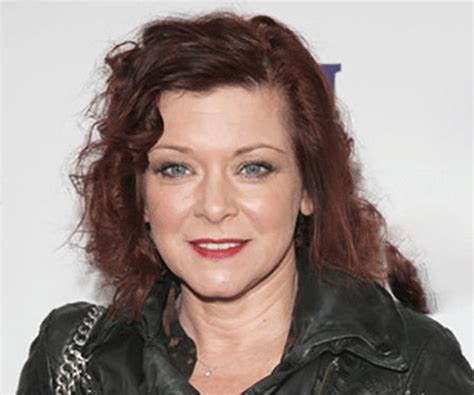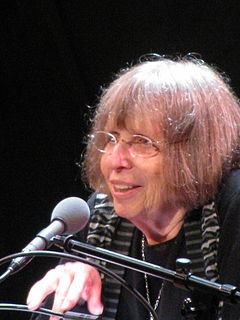A Quote by Suzanne Collins
When I wake up, the other side of the bed is cold. My fingers stretch out, seeking Prim`s warmth but finding only the rough canvas cover of the mattress. She must have had bad dreams and climbed in with our mother. Of course, she did. This is the day of the Reaping.
Related Quotes
She was tired of hugging pillows, counting on blankets for warmth, and reliving romantic moments only in her dreams. She was tired of hoping that every day would hurry so she could get on to the next. Hoping that it would be a better day, an easier day. But it never was. Worked, paid the bills, and went to bed but never slept. Each morning the weight on her shoulders got heavier and heavier and each morning she wished for night to fall quickly so she could return to her bed to hug her pillows and wrap herself in the warmth of her blankets.
The doctor's wife wasn't a bad woman. She was sufficiently convinced of her own importance to believe that God actually did watch everything she did and listen to everything she said, and she was too taken up with rooting out the pride she was prone to feeling in her own holiness to notice any other failings she might have had. She was a do-gooder, which means that all the ill she did, she did without realizing it.
My little sister, Prim, curled up on her side, cocooned in my mother’s body, their cheeks pressed together. In sleep, my mother looks younger, still worn but not so beaten-down. Prim’s face is as fresh as a raindrop, as lovely as the primrose for which she was named. My mother was very beautiful once, too. Or so they tell me.
Other families who are poor do what they can to get out of it. My mother did not. She did not utilise her resources. She had a degree. There was something she could have done, but she actively, purposely refused that so we could have this absolutely authentic experience of the worst of capitalism: 'See? Look how bad capitalism is.'
Rhoda comes now, having slipped in while we were not looking. She must have made a tortuous course, taking cover now behind a waiter, now behind some ornamental pillar, so as to put off as long as possible the shock of recognition, so as to be secure for one more moment to rock her petals in her basin. We wake her. We torture her. She dreads us, she despises us, yet she comes cringing to our sides because for al our cruelty there is always some name, some face which sheds a radiance, which lights up her pavements and makes it possible for her to replenish her dreams.
My mother was the first African-American policewoman in Seattle - recruited, actually - and she did it for only 2 years, as she did not want to carry a gun. She worked mostly on domestic disturbances. The NAACP wanted her to do it. She did not actually have the temperament to be a cop - she was very sweet. She had a Masters in social work.
I took all the blame. I admitted mistakes I hadn't made, intentions I'd never had. Whenever she turned cold and hard, I begged her to be good to me again, to forgive me and love me. Sometimes I had the feeling that she hurt herself when she turned cold and rigid. As if what she was yearning for was the warmth of my apologies, protestations, and entreaties. Sometimes I thought she just bullied me. But either way, I had no choice.
She could've looked at the tiny miracles in front of her: my feet, my hands, my fingers, the shape of my shoulders beneath my jacket, my human body, but she only stared at my eyes. The wind whipped again, through the trees, but it had no force, no power over me. The cold bit at my fingers, but they stayed fingers. "Grace," I said, very softly. "Say something." "Sam," she said, and I crushed her to me.
I heard police or ambulancemen, standing in our house, say, 'She must have provoked him,' or, 'Mrs Stewart, it takes two to make a fight.' They had no idea. The truth is my mother did nothing to deserve the violence she endured. She did not provoke my father, and even if she had, violence is an unacceptable way of dealing with conflict. Violence is a choice a man makes and he alone is responsible for it.
I shall never get out of this! There are two of me now: This new absolutely white person and the old yellow one, And the white person is certainly the superior one. She doesn't need food, she is one of the real saints. At the beginning I hated her, she had no personality- She lay in bed with me like a dead body And I was scared, because she was shaped just the way I was only much whiter and unbreakable and with no complaints. I couldn't sleep for a week she was so cold.
But what I kept wondering about is this: that first second when she felt her skirt burning, what did she think? Before she knew it was candles, did she think she'd done it herself? With the amazing turns of her hips, and the warmth of the music inside her, did she believe, for even one glorious second, that her passion had arrived?





































